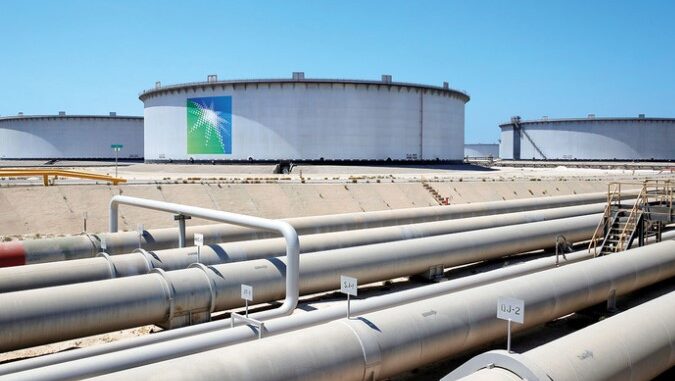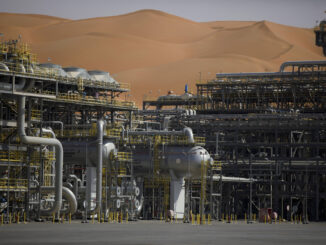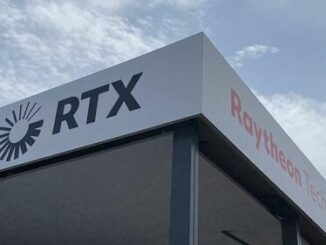
Saudi Arabia’s Red Sea crude terminals have taken on critical importance since tensions with Iran have threatened the key Gulf shipping lane through the Strait of Hormuz over the past few years.
Serving those ports is Saudi Aramco’s 5 million b/d East-West Pipeline, which was hit by a drone attack in May 2019 and is still under repair, according to sources, but the state oil giant has been able to keep supplies flowing westward through a separate, reserve network of other pipelines that run parallel.
Aramco does not highlight the existence of these extra pipelines, but sources familiar with the matter said they were part of the company’s strategic redundancy to protect its ability to remain the world’s largest exporter of crude.
“It is a back-up pipeline for the East-West, and is being used, and that is basically to avoid any blockage through the Strait of Hormuz,” said one source, who spoke on condition of anonymity due to the sensitivity of his work with the company.
Saudi Aramco declined to comment.
Another drone attack on the Abqaiq crude processing facility in the Eastern Province, Saudi Arabia’s primary oil producing region, in September 2019 put additional emphasis on the kingdom’s ability to ship crude from its west coast.
Price spike
That attack, which also hit the Khurais oil field, knocked out 5.7 million b/d of Saudi Arabia’s production –- some 5% of pre-pandemic global crude demand -– causing a historic spike in oil prices, but Aramco was able to carry out sufficient repairs to restore full output within 10 days.
The reserve pipeline network has allowed Aramco to restore flows to the port of Yanbu, in the southwest, to pre-attack levels since February, another source who requested anonymity said.
“It takes time and fix the actual core infrastructure. So, the emergency network is still being used since the attack,” the source said. “On Aramco’s legacy fields you have an emergency network. It is designed to replace at least 50% capacity within 24-48 hours.”
Aramco is not utilizing crude in storage to compensate for the damage sustained from the attack, the source said.
The 1,200 km East-West line runs from Abqaiq to Yanbu and was built in the 1980s to bypass the Persian Gulf, when the Iran-Iraq war had both countries engaged in a so-called “tanker war” hitting oil-laden ships heading for the Strait of Hormuz.
Since being expanded to its current 5 million b/d capacity in 1994, it has rarely run at full rates, with Aramco exporting the bulk of its crude from terminals in and around Ras Tanura on the Gulf.
Aramco, which has the exclusive right to produce and export crude in Saudi Arabia, has a production capacity of about 12.5 million b/d, though its current output has been capped at around 9 million b/d due to an OPEC supply accord.
It has exported around 6 million b/d in recent months, according to figures from the Joint Data Organizations Initiative.
In the recent Abqaiq and East-West Pipeline attacks, Iran-backed Houthi militia in Yemen have claimed responsibility, as well as for several other strikes aimed at Aramco facilities and vessels.
After the Abqaiq incident, Aramco said it was accelerating plans to expand the pipeline to 7 million b/d capacity. According to the company’s most recent international bond prospectus, that project will be completed in 2023.
But the Houthi rebels, acting as proxies for Iran, have increasingly targeted Aramco’s operations in and around the Red Sea.
Recent attacks
Three incidents have been reported in the past month.
On Dec. 14, an oil tanker suffered a blast in the waters off the port of Jeddah after it was hit an unmanned, explosive-laden boat.
On Nov. 25, the Aframax tanker Agrari, near the port at Al-Shuqaiq, was hit by an “external source,” according to its owner, while discharging gasoline.
On Nov. 23, a missile struck a Saudi Aramco distribution station near Jeddah.
Robust contingency plans for key infrastructure may become increasingly vital amid these frequent attacks. Saudi Arabia seemingly has less support from the US than it enjoyed previously, as US foreign policy priorities shift elsewhere.
“[Following the attack on Abqaiq, it] was interesting that the Trump administration really did not do anything about enforcing the Carter doctrine, which is where the United States said it would go to war to defend its interests in the Persian Gulf, which has happened in the past,” said Jim Krane, Wallace S. Wilson Fellow in Energy Studies at Rice University’s Baker Institute for Public Policy.
“The US is starting to de-emphasize the strategic importance of the Middle East and ramp down our involvement, moving it down the agenda of global importance and focus on other things like East Asia, China, India and Climate Change, and the NATO alliance.”



